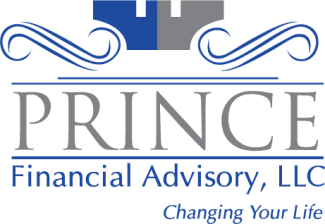
Negotiating a Great Mortgage in a High Rate Environment
Mortgage rates have risen above 7%, leaving many buyers feeling like a reasonable mortgage is out of reach. While current rates look high compared to the ultra-low rates of the past decade, they aren't outrageous from a historical perspective. The good news is you likely have more leverage as a buyer than you may think. With both lenders and sellers eager to avoid losing deals in a slowing market, there is room to get creative in negotiating favorable mortgage terms.
Current Rates Aren't Actually That High Historically
Today's mortgage rates above 7% feel high compared to the ultra-low rates of 2-3% we enjoyed in 2020 and 2021. But looking back further, rates above 7% aren't unusual at all. In the 1990s, rates were commonly 8% or higher, even hitting 10% in 1990.1 So while 7% stings compared to recent years, it's not outrageous historically.
Lenders and sellers remember times when high rates were the norm. With today's rates, they are worried about losing business as buyers balk at the payments. This fear of losing deals gives you more leverage than you probably realize as a buyer. Sellers and lenders want to find ways to make the numbers work for you, so you can likely negotiate better terms than you expect.
3 Tips for Finding a Good Mortgage Deal When Rates Are High
When mortgage rates rise, savvy negotiating becomes critical to avoid overpaying. Here are 3 tips for getting the best possible mortgage deal when rates are high:
1. Always Shop Around for Your Mortgage
It's common for real estate agents to recommend their preferred lender relationships. But rate quotes can still vary widely across lenders, even with identical borrower qualifications. Studies show that comparing at least 4 rate quotes could save over $1,000 per year in interest costs.2
To quickly compare loans with similar rates, look at the annual percentage rate (APR), which bakes in lender fees. If two loans have the same rate but one has a higher APR, it likely has higher fees and closing costs. Cast a wide net with your rate shopping.
2. Ask Lenders to Reduce or Waive Fees
Once you've identified your top lender picks, take a close look at the loan estimates and fee breakdowns. Don't be afraid to negotiate - both with your existing relationships and when leveraging competitor offers.
Ask lenders to beat competitors' terms if you get written offers. See if relationship lenders can offer fee waivers or discounts. Even consider asking for future no-cost refinancing if rates fall down the road. Review all the options and numbers closely to negotiate the best deal.
3. Request Seller Credits or Rate Buydowns
On the seller side, closing costs can be a major expense. Ask sellers to provide credits or pay closing costs as part of the offer negotiation.
You may even find some sellers or home builders willing to offer rate buydowns. This means the seller pays either temporarily or permanently to reduce your mortgage interest rate.
A temporary buydown lowers your rate for the first few years before it rebounds to the normal level. The seller covers the difference during the intro period.
A permanent buydown permanently reduces your rate for the life of the loan, with the seller paying points upfront at closing.
If rates fall in the future, a permanent buydown looks less attractive. But in the short run, seller subsidies can provide substantial savings.
Look at the Full Financial Picture
Today's high mortgage rates are painful. But take heart - you likely have more negotiating leverage than you expect in this market. Get creative, run the numbers, and negotiate the best possible deal.
A financial professional can help analyze your full financial picture as you navigate the home buying process. If you're thinking about buying a home soon and want to discuss options from an overall financial perspective, please get in contact with us.
The high rate environment requires a strategic approach, but the right deal is still possible.
Sources:
1. https://www.thestreet.com/mortgages/historic-mortgage-rates-14849606

